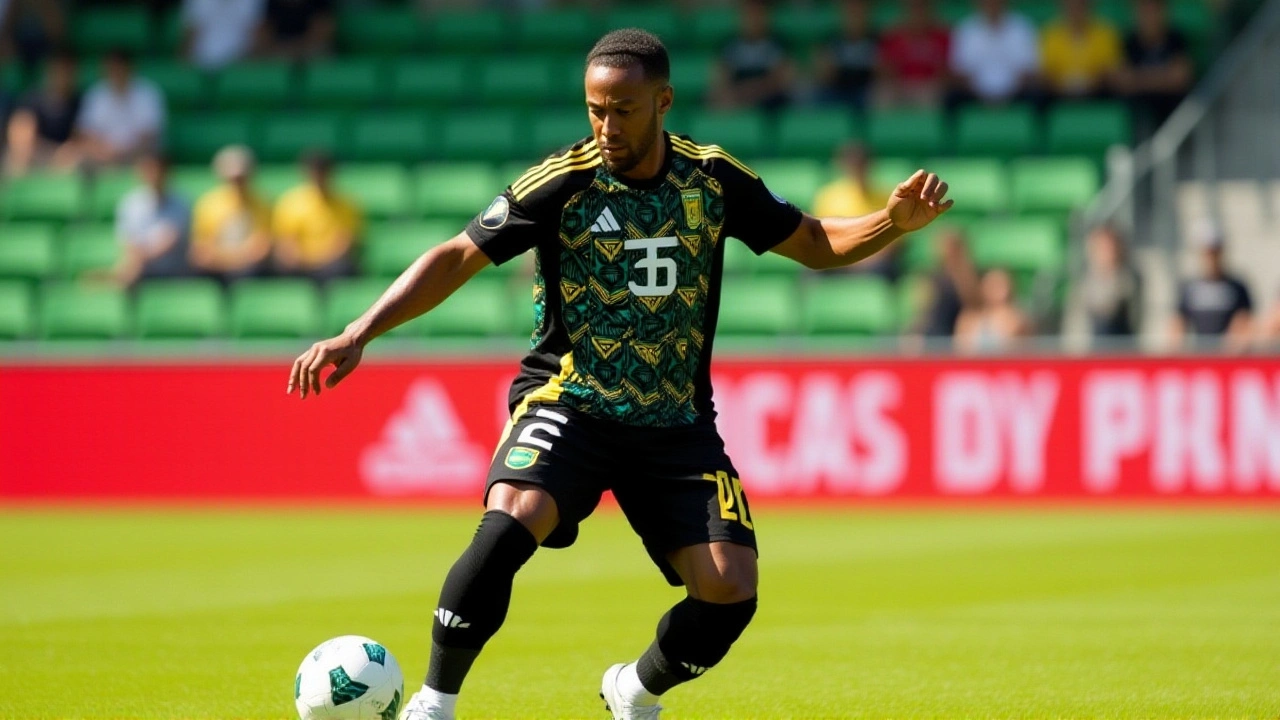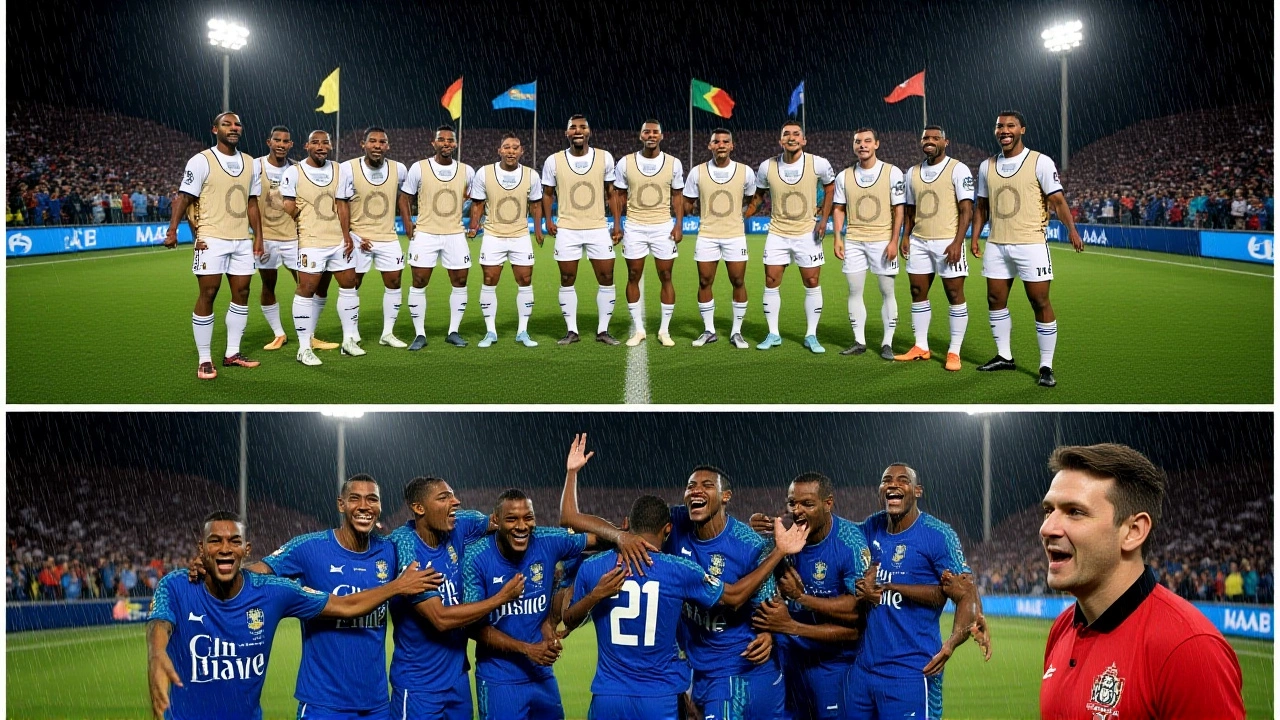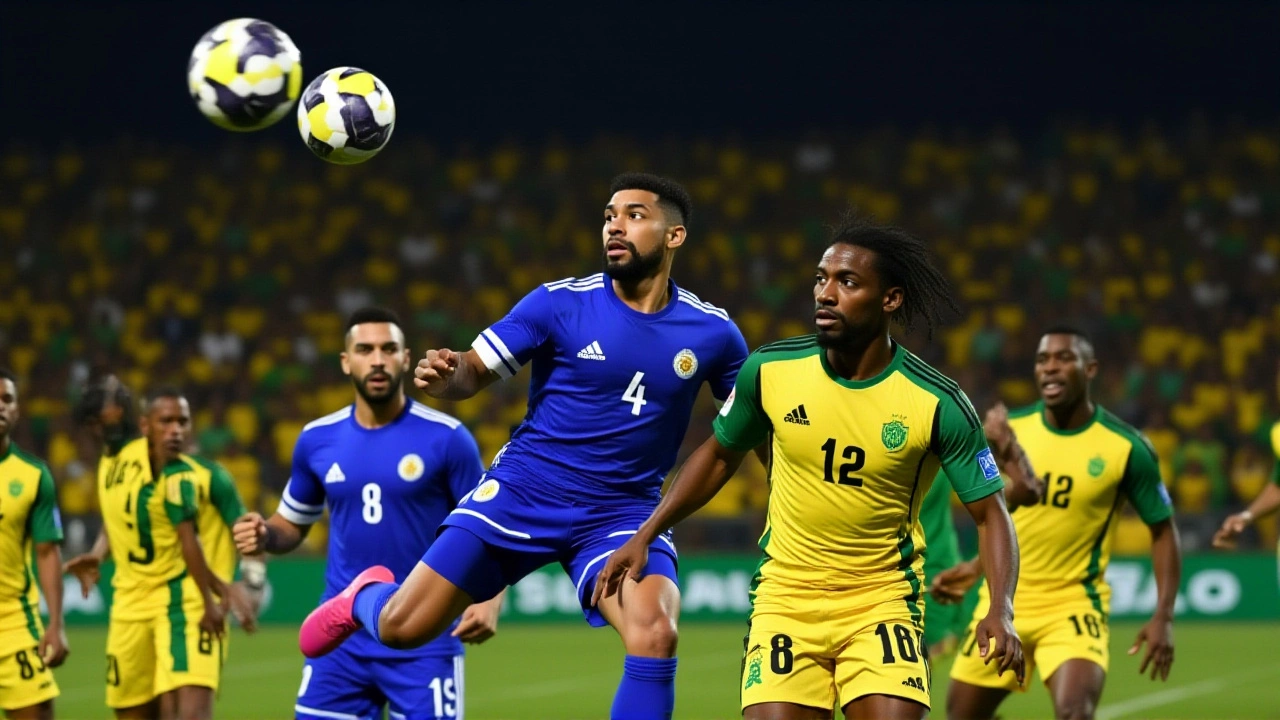Curaçao Makes History with First-Ever FIFA World Cup Qualification After 0-0 Draw in Jamaica
 Nov, 20 2025
Nov, 20 2025
When the final whistle blew at Independence Park in Kingston on Tuesday, November 18, 2025, no one scored — but Curaçao Football Federation did something no one thought possible. For the first time in its history, the Caribbean nation secured a spot at the FIFA World Cup 2026. The 0-0 draw against Jamaica wasn’t pretty, but it was perfect. With Jamaica down to 10 men after Jonathan Russell’s second yellow card in the 89th minute, Curaçao held firm. No goals. No panic. Just history.
A Nation That Never Made It — Until Now
Curaçao, a small island in the southern Caribbean and a constituent country within the Kingdom of the Netherlands, has long been the underdog in CONCACAF. Despite producing talented players like Leandro Bacuna and Damion Lowe, the national team had never advanced past the qualifying rounds. Even when they beat the U.S. in a friendly in 2021 or held Mexico to a draw in 2023, the dream felt distant. This time, though, they didn’t just compete — they dominated the group stage without a single loss. Three wins. Three draws. Zero defeats. Twelve points. A +10 goal difference. And now, a plane ticket to North America’s biggest sporting event.The Match That Changed Everything
The atmosphere at Independence Park was electric. Nearly 35,000 fans, mostly in reggae yellow, roared as Jamaica pushed forward after Russell’s dismissal. But Curaçao’s defense, anchored by goalkeeper Andre Blake — yes, the same Blake who plays for Nashville SC and is considered one of CONCACAF’s best — held like granite. He made three critical saves in the final 15 minutes, including a diving stop on a header from Karoy Anderson that looked destined for the net. "Goalkeeper well off his line. Andre Blake to the rescue," CBS Sports noted. The sigh of relief from Jamaican fans was audible even through the TV broadcast. Curaçao’s chances were few, but they were dangerous. In the 90+10th minute, Jeremy Antonisse unleashed a left-footed shot from the left flank — too high, but it was the last real threat. The ball never crossed the line. And that was enough. For Curaçao, it was everything.Who Made It Possible?
The squad was a mix of Dutch-trained professionals and local heroes. Captain Rico Henry, who plays in England’s Championship, organized the backline with calm precision. Midfielder Leandro Bacuna, once a Premier League prospect, controlled tempo like a veteran. And then there was Damion Lowe, the 31-year-old defender who’s been with the team since 2015. He didn’t score, didn’t assist — but he blocked three clear chances in stoppage time. "He’s the quiet heart of this team," said Curaçao coach Wim Koevermans after the match. "They didn’t need fireworks. They needed grit. And they had it." Jamaica, by contrast, had everything going for them: home soil, a World Cup pedigree (1998 and 2022), and stars like Demarai Gray and Shamar Nicholson. But they couldn’t find the breakthrough. Their 1-0 loss to Trinidad and Tobago in the previous match had already made this game a must-win. And when Russell got his second yellow — a reckless challenge on Jahshaun Anglin — their momentum vanished.
Why This Matters Beyond the Pitch
Curaçao’s qualification isn’t just a sporting milestone — it’s a cultural earthquake. With a population under 160,000, it’s the smallest nation ever to qualify for a World Cup finals since Iceland in 2018. The island’s economy, heavily reliant on tourism and oil, could see a surge in global visibility. Local businesses have already reported a 300% spike in jersey sales. Schools are planning World Cup viewing parties. And for the first time, children on the island aren’t dreaming of playing for the Netherlands — they’re dreaming of wearing blue. The ripple effect extends to the entire CONCACAF region. Trinidad and Tobago (7 points) and Bermuda (1 point) finished behind, but Curaçao’s success proves that even the smallest teams can compete if they’re organized, disciplined, and united. "They didn’t have the talent of the U.S. or Mexico," said former U.S. captain Clint Dempsey in a post-match analysis. "But they had something more important: belief."What’s Next for Curaçao?
Now, the real challenge begins. The FIFA World Cup 2026 will be hosted across the U.S., Canada, and Mexico. Curaçao will be drawn into a group likely featuring heavyweights like Brazil, Spain, or Germany. They won’t be favorites. But they won’t be intimidated. "We’ve already beaten the odds," said Karoy Anderson after the match, holding back tears. "Now we go and show the world what we’re made of." The federation has already begun planning training camps in the Netherlands and Spain. Players are being offered bonuses tied to performance. And a new national stadium — long promised but never built — is now a top priority. "This isn’t the end," said Wim Koevermans. "It’s the beginning."
What This Means for Caribbean Football
For decades, Caribbean football was seen as a pipeline — players born here, developed in Europe, then representing bigger nations. Curaçao flipped the script. They kept their stars. They built a system. They didn’t wait for permission. And now, they’re on the world stage. Trinidad and Tobago, which reached the 2006 World Cup, is watching closely. Haiti, which nearly qualified in 2022, is taking notes. Even the Dominican Republic, long overlooked, is rethinking its approach. "Curaçao proved you don’t need money or population," said Dr. Lisa Boodram, a sports sociologist at the University of the West Indies. "You need identity. And they have it."Frequently Asked Questions
How did Curaçao qualify for the World Cup without winning any of their final matches?
Curaçao didn’t need to win their final match — they just needed to avoid defeat. Their 3-0-3 record (wins-draws-losses) earned them 12 points, the most in Group B. Jamaica, despite winning three matches, lost one and finished with 11 points. Curaçao’s unbeaten run and superior goal difference (+10 vs. +8) secured top spot. It’s a testament to consistency over flash.
Why is this considered a historic achievement for Curaçao?
Curaçao has never qualified for a World Cup finals since becoming a separate FIFA member in 2011 (previously part of the Netherlands Antilles). Even as a Dutch territory, no Curaçaoan team had ever made it. With a population smaller than many U.S. cities, their qualification is the smallest nation to reach the World Cup since Iceland in 2018 — and the first Caribbean team to do so since Jamaica in 2022.
Who were the key players in Curaçao’s qualification campaign?
Midfielder Leandro Bacuna controlled play, defender Damion Lowe anchored the backline, and goalkeeper Andre Blake made crucial saves — including three in the final 15 minutes against Jamaica. Jeremy Antonisse provided creativity, while captain Rico Henry led by example. The team’s strength was its cohesion: 14 of the 23-man squad play in Europe, but all have deep roots in Curaçao.
What does this mean for Curaçao’s future in international football?
The federation has already announced plans to build a new national stadium and increase youth funding. Sponsorship deals are expected to surge, and European clubs are now more likely to scout locally. More importantly, it’s changed the mindset: young players no longer see leaving for the Netherlands as the only path. Now, they see wearing the blue jersey as a dream worth chasing.
How did Jamaica’s red card affect the outcome?
Jonathan Russell’s second yellow card in the 89th minute turned the match. Jamaica, needing a win to stay ahead on goal difference, lost their most aggressive attacker and were forced into a defensive shape. Curaçao, already sitting deep, absorbed pressure and even had a few counter chances. Without the red card, Jamaica might have pushed harder and created a goal — but with 10 men, they couldn’t break through.
Will Curaçao be competitive at the 2026 World Cup?
They won’t be favorites — but they’re not just token participants. Their defensive discipline, physicality, and team cohesion could trouble bigger teams. Think of them like Qatar in 2022: small, organized, and dangerous on set pieces. If they draw a group with a weaker team, they could even sneak into the knockout stage. Their real goal? To prove they belong.